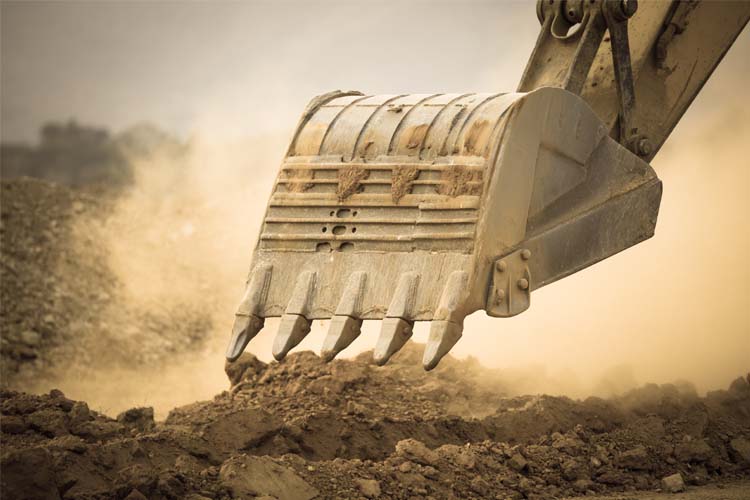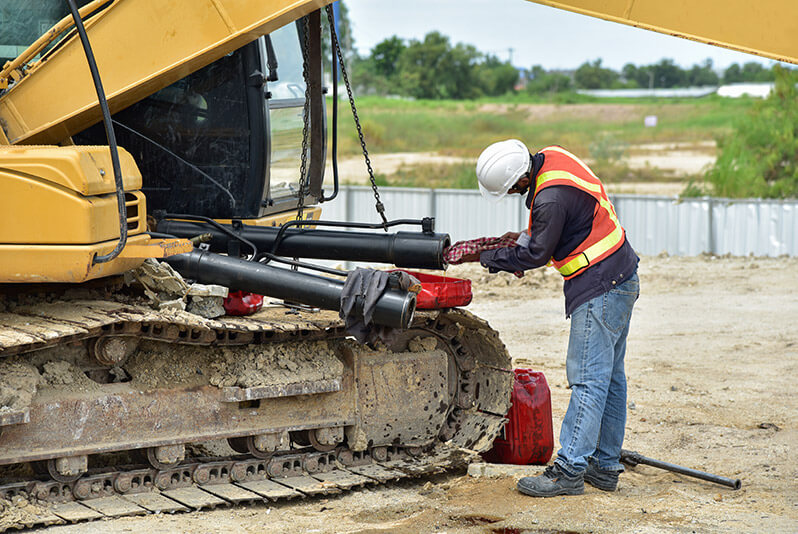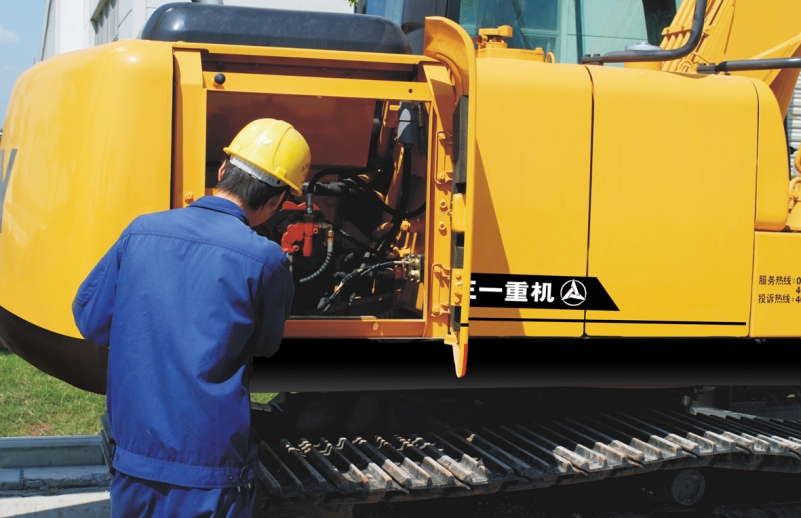Maintain excavator performance and longevity by adhering to regular maintenance schedules, including checking fluid levels, inspecting components for wear and damage, and promptly addressing any issues to prevent costly downtime.
Expert Advice on Excavator Maintenance: Your Go-To Guide for Equipment Care
Regular maintenance is crucial for the proper functioning and longevity of excavators. These heavy-duty machines are subjected to harsh working conditions, including extreme temperatures, heavy loads, and constant movement.
Without regular maintenance, excavators can experience a range of issues, including decreased performance, increased fuel consumption, and even complete breakdowns. By implementing a regular maintenance schedule, excavator owners can ensure that their machines remain in optimal condition, reducing the risk of costly repairs and downtime.
In addition to preventing breakdowns, regular maintenance can also improve the safety of excavator operation. Faulty components or worn-out parts can pose serious safety hazards to operators and those working in the vicinity of the machine.
By conducting regular inspections and maintenance tasks, owners can identify and address potential safety concerns before they escalate into more serious issues. Overall, regular maintenance is essential for maximizing the efficiency, safety, and lifespan of excavators.
Common Excavator Maintenance Tasks
There are several key maintenance tasks that should be performed regularly to keep excavators in top condition. One of the most important tasks is checking and changing the engine oil and filters. Clean oil is essential for the proper lubrication and cooling of the engine, and regular oil changes can prevent premature wear and damage.
Additionally, the hydraulic system should be inspected and maintained, including checking hydraulic fluid levels, replacing filters, and inspecting hoses and fittings for leaks or damage.
Another crucial maintenance task is inspecting and greasing the undercarriage components, including the tracks, rollers, and idlers. Proper lubrication of these components is essential for preventing premature wear and ensuring smooth operation.
Furthermore, the air filters, fuel filters, and coolant levels should be checked and replaced as needed to prevent contamination and overheating. Regular inspection and maintenance of the electrical system, including the battery, wiring, and connectors, is also important for preventing electrical issues and ensuring reliable operation.
By performing these common maintenance tasks on a regular basis, excavator owners can keep their machines running smoothly and prevent costly repairs.
Choosing the Right Maintenance Schedule for Your Excavator
When it comes to establishing a maintenance schedule for an excavator, there are several factors to consider.
The manufacturer’s recommendations should always be the starting point for creating a maintenance schedule, as they are based on the specific design and components of the machine. Additionally, the working conditions and environment in which the excavator operates should be taken into account.
For example, excavators that are used in dusty or dirty environments may require more frequent filter changes and cleaning to prevent contamination and damage.
The frequency of maintenance tasks should also be based on the hours of operation and the intensity of use. Heavy-duty excavators that are used for long hours or in demanding applications may require more frequent maintenance than those used infrequently or for lighter tasks. Finally, the experience and expertise of the operators and maintenance personnel should be considered when establishing a maintenance schedule.
Proper training and knowledge of the machine can help ensure that maintenance tasks are performed correctly and effectively. By taking these factors into consideration, excavator owners can create a maintenance schedule that is tailored to the specific needs of their machines, maximizing performance and longevity.
Tips for Extending the Lifespan of Your Excavator
Extending the lifespan of an excavator requires a proactive approach to maintenance and care. One of the most important tips for extending the lifespan of an excavator is to follow a regular maintenance schedule and perform all recommended maintenance tasks.
This includes checking and changing fluids, inspecting and greasing components, and replacing filters and worn-out parts. By staying on top of maintenance, owners can prevent premature wear and damage, ultimately extending the lifespan of their machines.
Another key tip for extending the lifespan of an excavator is to operate the machine with care and attention to proper techniques. Rough or careless operation can lead to unnecessary wear and damage to components, shortening the lifespan of the machine.
Proper training and supervision of operators can help ensure that the excavator is operated safely and efficiently, reducing the risk of premature wear and breakdowns.
Additionally, storing the excavator in a clean, dry environment when not in use can help prevent corrosion and damage, further extending its lifespan. By following these tips and maintaining a proactive approach to care and maintenance, excavator owners can maximize the lifespan of their machines and reduce the risk of costly repairs.
Identifying and Addressing Potential Issues Early
Early identification and addressing of potential issues is crucial for preventing more serious problems with excavators. Regular inspections and monitoring of the machine’s performance can help owners identify potential issues before they escalate into major problems.
Unusual noises, vibrations, or changes in performance can be early indicators of issues that require attention. By addressing these issues early, owners can prevent further damage and avoid costly repairs and downtime.
In addition to regular inspections, operators and maintenance personnel should be trained to recognize potential issues and take appropriate action. This includes understanding the normal operation of the machine and being able to identify abnormal behavior or performance.
By empowering operators and maintenance personnel to identify and address potential issues early, owners can prevent more serious problems and ensure the continued reliability and performance of their excavators. Overall, early identification and addressing of potential issues is essential for maintaining the efficiency, safety, and longevity of excavators.
Understanding the Role of Fluids in Excavator Maintenance
Fluids play a critical role in the operation and maintenance of excavators. Engine oil, hydraulic fluid, coolant, and other fluids are essential for lubricating, cooling, and protecting the various components of the machine.
Regular monitoring and maintenance of these fluids is essential for ensuring the proper functioning and longevity of the excavator. Engine oil should be checked and changed according to the manufacturer’s recommendations to prevent premature wear and damage to the engine.
Additionally, the hydraulic system should be monitored for proper fluid levels and contamination, and the fluid should be changed and filters replaced as needed.
Coolant is another important fluid that requires regular attention. Proper coolant levels and condition are essential for preventing overheating and corrosion of the engine and other components. Regular inspection and maintenance of the coolant system, including checking for leaks and contamination, can help prevent costly repairs and downtime.
Overall, understanding the role of fluids in excavator maintenance and staying on top of fluid monitoring and maintenance tasks is essential for ensuring the proper functioning and longevity of the machine.
Best Practices for Cleaning and Storing Your Excavator
Proper cleaning and storage practices are essential for maintaining the condition and performance of excavators. After each use, the machine should be thoroughly cleaned to remove dirt, debris, and other contaminants that can cause damage and corrosion.
This includes washing the exterior of the machine, as well as cleaning the undercarriage, tracks, and other components. Additionally, the interior of the machine should be cleaned to remove dust and debris that can affect the performance of the electrical and hydraulic systems.
Proper storage of the excavator when not in use is also important for preventing damage and corrosion. The machine should be stored in a clean, dry environment to prevent exposure to moisture and contaminants.
If the machine will be stored for an extended period, additional steps may be necessary, such as applying a protective coating to prevent corrosion. By following best practices for cleaning and storing the excavator, owners can prevent premature wear and damage, ultimately extending the lifespan of the machine and reducing the risk of costly repairs.
The Importance of Proper Lubrication for Excavator Components
Proper lubrication is essential for preventing premature wear and damage to the components of excavators. The undercarriage components, including the tracks, rollers, and idlers, require regular greasing to ensure smooth operation and prevent premature wear.
Additionally, the various pivot points, bearings, and other moving parts of the machine should be properly lubricated to prevent friction and wear. Without proper lubrication, components can wear out more quickly, leading to decreased performance and increased risk of breakdowns.
In addition to regular greasing, the use of high-quality lubricants and greases is essential for ensuring the proper functioning and longevity of excavator components.
Using the wrong type of lubricant or grease can lead to increased wear and damage, ultimately shortening the lifespan of the machine. By following the manufacturer’s recommendations for lubrication and using high-quality products, owners can ensure that their excavators remain in optimal condition and prevent premature wear and damage to components.
How to Perform Routine Inspections on Your Excavator
Routine inspections are essential for identifying potential issues and ensuring the proper functioning of excavators. Regular inspections should be performed by trained personnel who are familiar with the machine and its components.
These inspections should include a thorough examination of the exterior and interior of the machine, as well as the various components and systems. Any signs of wear, damage, or abnormal behavior should be noted and addressed as needed.
In addition to regular inspections, operators should be trained to perform pre-operational checks before using the machine. This includes checking fluid levels, inspecting the undercarriage and tracks, and ensuring that all safety features are functioning properly.
By performing routine inspections and pre-operational checks, operators can identify potential issues early and take appropriate action to prevent more serious problems. Overall, routine inspections are essential for maintaining the efficiency, safety, and longevity of excavators.
Working with a Professional for Excavator Maintenance Services
While some maintenance tasks can be performed by owners and operators, working with a professional for excavator maintenance services is essential for ensuring the proper functioning and longevity of the machine. Professional maintenance personnel have the knowledge, experience, and tools to perform thorough inspections, maintenance tasks, and repairs as needed. Additionally, they are familiar with the specific requirements and recommendations of the manufacturer, ensuring that maintenance is performed correctly and effectively.
In addition to regular maintenance, professional services can also include diagnostic testing and troubleshooting to identify potential issues and prevent more serious problems. By working with a professional for excavator maintenance services, owners can ensure that their machines remain in optimal condition and prevent costly repairs and downtime. Overall, professional maintenance services are essential for maximizing the efficiency, safety, and lifespan of excavators.
Conclusion
In conclusion, regular maintenance is crucial for the proper functioning and longevity of excavators. By following a regular maintenance schedule and performing common maintenance tasks, owners can prevent breakdowns, improve safety, and extend the lifespan of their machines.
Overall, a proactive approach to maintenance is essential for maximizing the performance and lifespan of excavators.




Leave a Reply